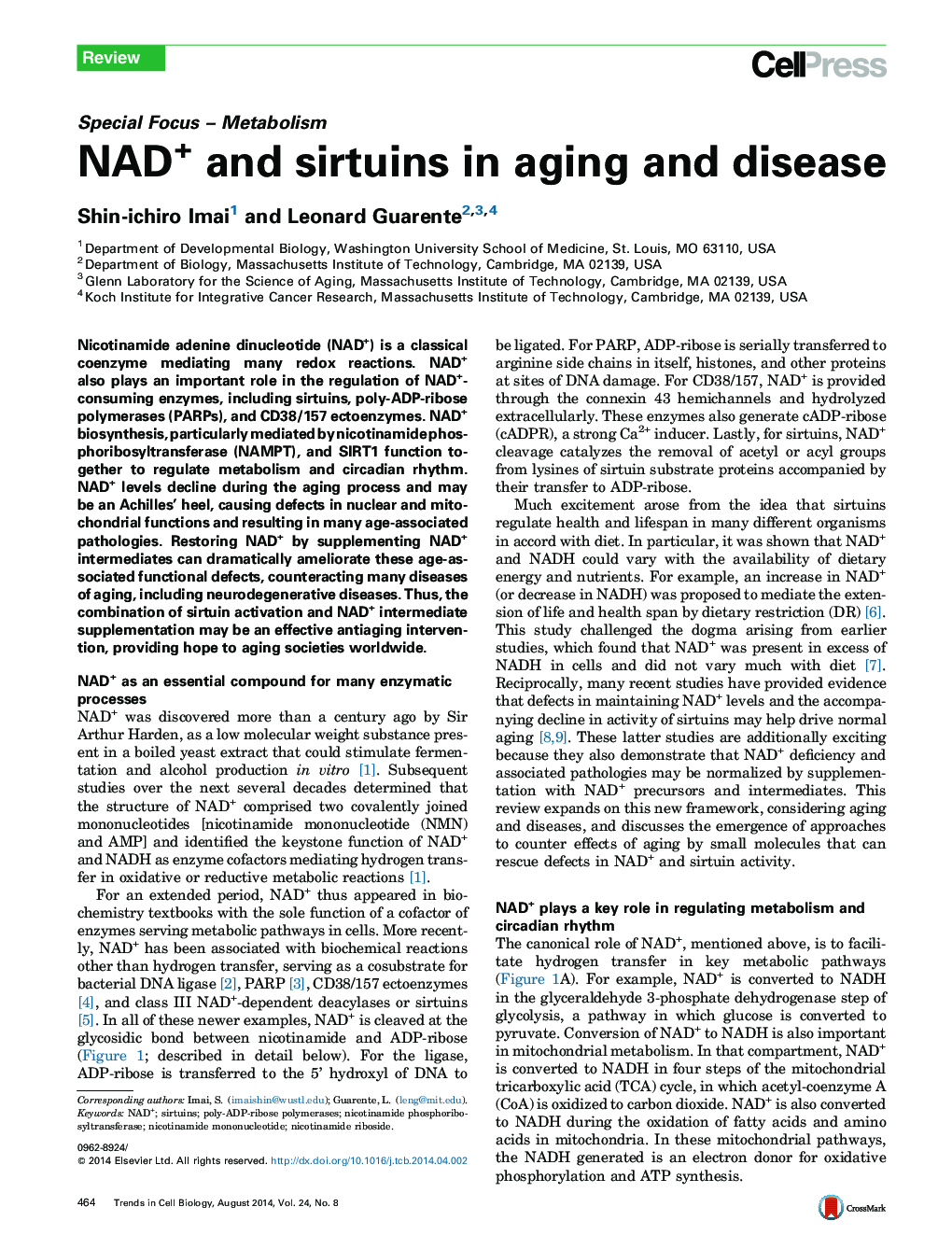| Article ID | Journal | Published Year | Pages | File Type |
|---|---|---|---|---|
| 2204521 | Trends in Cell Biology | 2014 | 8 Pages |
•NAD+ plays a key role in regulating metabolism and circadian rhythm through sirtuins.•NAD+ becomes limiting during aging, affecting sirtuins’ activities.•NAD+ decline is likely to be due to a NAD+ biosynthesis defect and increased depletion.•Supplementing key NAD+ intermediates can restore NAD+ levels and ameliorate age-associated pathophysiologies.
Nicotinamide adenine dinucleotide (NAD+) is a classical coenzyme mediating many redox reactions. NAD+ also plays an important role in the regulation of NAD+-consuming enzymes, including sirtuins, poly-ADP-ribose polymerases (PARPs), and CD38/157 ectoenzymes. NAD+ biosynthesis, particularly mediated by nicotinamide phosphoribosyltransferase (NAMPT), and SIRT1 function together to regulate metabolism and circadian rhythm. NAD+ levels decline during the aging process and may be an Achilles’ heel, causing defects in nuclear and mitochondrial functions and resulting in many age-associated pathologies. Restoring NAD+ by supplementing NAD+ intermediates can dramatically ameliorate these age-associated functional defects, counteracting many diseases of aging, including neurodegenerative diseases. Thus, the combination of sirtuin activation and NAD+ intermediate supplementation may be an effective antiaging intervention, providing hope to aging societies worldwide.
